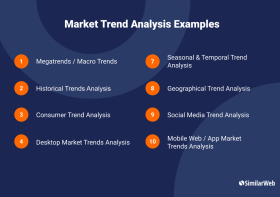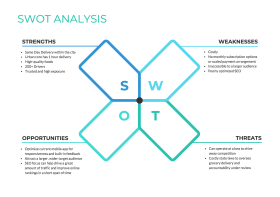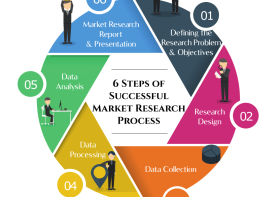Consumer Behavior Insights

In today’s digital age, the tech industry is booming with innovations that captivate and revolutionize the world. As a tech-oriented copywriter, it is imperative to comprehend the intricate dynamics of consumer behavior within this niche. By delving into consumer insights, we can gain a deeper understanding of how and why individuals make purchasing decisions in the tech marketplace.
The Psychological Factors Influencing Tech Purchases
When it comes to tech products, consumers’ decisions are often driven by a combination of psychological factors. Understanding these factors empowers marketers to tailor their messaging effectively and create persuasive campaigns:
1. The Need for Novelty and Innovation
In the tech realm, there is a perpetual pursuit of novelty and innovation. Consumers are always on the lookout for the latest advancements that offer improved functionality, convenience, and cutting-edge features. Brands that can demonstrate their ability to meet these needs are more likely to capture the attention and loyalty of tech-savvy consumers.
2. Social Validation
Consumer behavior is deeply influenced by the desire for social validation. Technology is often associated with status, and owning the latest gadgets or devices elevates one’s image in the eyes of others. Brands must leverage this aspect by showcasing their products as symbols of prestige and success, establishing an emotional connection with their audience.
3. Risk Perception and Trust
Technology investments often involve a certain level of risk for consumers. Trust is a crucial factor in mitigating this risk and convincing potential buyers to make a purchase. Brands that can establish themselves as reliable, reputable, and transparent entities through testimonials, product reviews, and warranties build a sense of trust, making consumers more confident in their decision to invest.
Understanding the Buying Journey
In the tech niche, understanding the consumer buying journey is vital. By dividing the process into various stages, marketers can map out strategies to influence consumer decisions at each step:
1. Awareness Stage
This is the initial phase where consumers become aware of their needs for a tech product. Marketers must generate awareness by showcasing the unique selling points and benefits of their offerings through compelling content, online ads, social media campaigns, and endorsements by influencers. By tapping into the right channels, brands can attract potential buyers.
2. Consideration Stage
During the consideration stage, consumers actively evaluate various options available in the market. Marketers can influence the decision-making process by providing detailed product information, offering demos, and leveraging customer testimonials. By highlighting the features that align with consumer needs, brands can position themselves favorably against competitors.
3. Decision Stage
At this critical stage, consumers are ready to make a purchase. Brands must make the buying process seamless and convenient by optimizing their websites, simplifying the checkout process, and offering various payment options. Maintaining a clear and direct communication channel with consumers further solidifies their decision to choose a particular brand.
The Role of Personalization
Personalization plays a crucial role in marketing within the tech niche. By tailoring messages and offerings to meet individual needs and preferences, brands can create a more meaningful connection with their audience:
1. Customized Recommendations
By analyzing consumer data and past interactions, brands can provide personalized recommendations that align with each consumer’s specific requirements. This level of personalization enhances the overall shopping experience and fosters customer loyalty.
2. Targeted Advertisements
Through data-driven insights, brands can serve targeted advertisements to potential consumers, ensuring that the right messages reach the right people at the right time. This level of precision minimizes ad wastage and maximizes the effectiveness of marketing efforts.
3. Post-Purchase Engagement
Engaging with consumers after purchase is vital for cultivating long-term relationships. Timely and personalized follow-ups, such as tailored recommendations, customer support, and exclusive offers, help maintain brand loyalty and encourage future purchases.
The Future of Consumer Behavior in the Tech Niche
As technology continues to evolve at an unprecedented pace, so will consumer behavior within the tech niche. Some emerging trends that will shape the future of this industry include:
1. Rise of Artificial Intelligence
Artificial intelligence will play a significant role in understanding and predicting consumer behavior. AI-powered chatbots and virtual assistants will revolutionize the customer support experience by providing instant and personalized assistance.
2. Increased Focus on Sustainability
Consumers are becoming more conscious of their environmental footprint, leading to a growing demand for sustainable tech solutions. Brands that prioritize eco-friendliness and ethically sourced materials will gain a competitive edge.
3. Integration of Virtual and Augmented Reality
Virtual and augmented reality technologies will redefine consumer experiences by enabling virtual try-ons, immersive product demonstrations, and enhanced product visualizations. These technologies will bridge the gap between online and offline shopping.
In conclusion, being a skilled copywriter in the tech niche requires a thorough understanding of consumer behavior insights. By comprehending the psychological factors influencing tech purchases, mapping out the buying journey, and embracing personalization, marketers can effectively connect with their tech-savvy audience. As consumer behavior continues to evolve alongside technological advancements, the ability to adapt to emerging trends will be vital for success in this ever-evolving industry.


